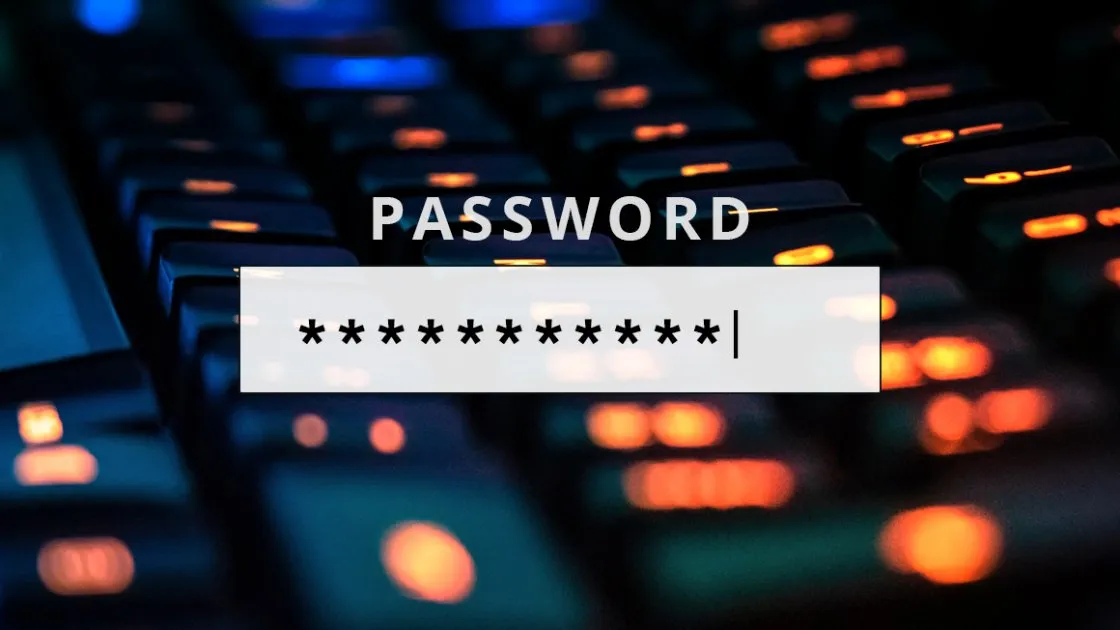In the digital era, forgetting passwords can be a headache. Are your passwords really protecting you from cyber threats? Cybercriminals persistently find new ways to breach your data. Crafting a strong password is more than a routine; it’s creating a shield for your digital identity. Secure passwords are your first defense against unauthorized access, but convenience often compromises security. Embrace password managers and two-factor authentication, and deepen your password management knowledge for robust data and identity protection.

The Fundamentals of Password Security
At the heart of personal data protection lies the strength of your password. A secure password is a blend of 30 characters, including a mix of lowercase and uppercase letters, which creates a complex barrier that brute-force attacks find difficult to penetrate. Password managers can simplify the task of storing passwords while also ensuring that each account boasts a unique and robust password. Remember, the foundation of password security is not just about creating hard-to-guess passwords but also about managing them effectively to safeguard your personally identifiable information.
Understanding Password Vulnerabilities
Even the most diligent efforts in password management can be undermined by certain vulnerabilities. Data breaches can expose even secure passwords, making it clear that password security is not just about the password itself but also about the systems in which they exist and how they are stored and managed. Recognizing these vulnerabilities is the first step in fortifying your defenses against potential threats.
The Consequences of Weak Password Practices
Neglecting password strength and management can lead to dire consequences. Weak passwords are like open doors to cyber criminals, inviting them to steal your personal information, finances, and identity. The fallout from such invasions can be extensive, affecting your online security and real-world peace of mind. Understanding that the key to mitigating these risks is to adhere to best practices for creating and maintaining strong passwords is crucial.
The Intricacies of Password Attacks
Understanding hackers’ various strategies to breach password security is crucial for defending your digital identity. These attacks are sophisticated and diverse, exploiting human psychology, technological vulnerabilities, and the sheer power of computing to crack, guess, or steal passwords. Awareness of these tactics forms an essential part of your cybersecurity armor.
The Mechanics of a Brute-Force Attack
Brute-force attacks are a trial-and-error method hackers use to decode encrypted data such as passwords. This approach systematically checks all possible combinations until the correct one is found. Alarmingly, this method becomes more effective as computing power increases, and passwords leaked from other breaches can inform these attempts, making reused passwords particularly vulnerable.
The Simplicity of Dictionary Attacks
Dictionary attacks are less random than brute-force, relying on a prearranged list of potential passwords derived from commonly used words and known passwords. This type of attack exploits the tendency of individuals to use simple, memorable words, making it crucial for users to avoid common phrases and incorporate unpredictability into their password creation process. Tools like the SHA1 Hash Generator can help users understand how their passwords are transformed into hashes, emphasizing the importance of creating strong, unpredictable passwords that are resistant to such attacks.
Decrypting Rainbow Table Tactics
Rainbow tables are precomputed tables used by hackers to reverse cryptographic hash functions, which are ways of encrypting passwords. By matching hashed passwords against this massive dataset, attackers can uncover the plain text version of a password. However, modern security measures like salting, where random data is added to a password before hashing, can defend against this tactic.
The Deception of Phishing Schemes
Phishing schemes trick you into voluntarily handing over your username and password, often through a counterfeit website or deceptive communication that mimics a trusted entity. These schemes prey on trust and urgency, coercing users to reveal sensitive information. Recognizing and resisting these deceptive prompts is a key component of personal cybersecurity.
Manipulations Through Social Engineering
Social engineering manipulates individuals into breaking normal security procedures. It’s a psychological battle rather than a technical one, where attackers exploit human error to obtain passwords. Hackers can trick users into revealing their credentials by posing as legitimate entities or creating scenarios that provoke a sense of fear or urgency.
Crafting Fortress-Like Passwords
The first step in fortifying your digital life is crafting strong passwords. They are the front line in protecting your online presence as a barrier against unauthorized access to your personal and financial information. By investing time in creating robust passwords, you are setting up a resilient defense against the most common forms of cyber attacks.
The Blueprint for High-Strength Passwords
Designing a high-strength password involves a mix of creativity and strategy. These passwords are your digital fortress walls, keeping intruders at bay and securing your online identity against ceaseless hacking attempts.
How Length and Complexity Serve as Your First Line of Defense
Password strength grows exponentially with length and complexity. A mix of uppercase and lowercase letters, numbers, and symbols disrupts patterns, making a password-less susceptible to attacks. This complexity and sufficient length create a formidable barrier that frustrates hacking efforts and secures your digital footprint.
Guidelines for Engineering Unbreakable Passwords
To engineer unbreakable passwords, combine unpredictability with personal memorability. Avoid common phrases and incorporate a variety of characters. Think of a passphrase that only you can understand, possibly by stringing together a sequence of random words and numbers that have a unique meaning to you. The goal is to be complex yet memorable.
Beyond Passwords: Layering Your Digital Defense
While passwords are fundamental to personal cybersecurity, they should not be your sole line of defense. Layering your security with additional measures like two-factor authentication, encryption, and secure backups creates a more comprehensive and resilient protective shield for your online activities.
Evaluating the Efficacy of Password Managers
When it comes to managing your plethora of passwords, password managers are a vital tool. They store and organize your passwords in a secure vault, accessible with one master key. The strength of this approach lies in its ability to generate and remember complex passwords for you, reducing the burden on your memory. However, the effectiveness of password managers isn’t without scrutiny. It’s crucial to recognize that while they centralize your password security, they also become a single point of failure. Should the master password be compromised or the manager itself suffer a security flaw, as has happened in the past, your digital keys are at risk. Nonetheless, most reputable password managers have robust security measures, including encrypted storage and zero-knowledge protocols, ensuring that even the service providers cannot access your data.
Pros and Cons: Balancing Convenience and Security
Password managers streamline your online experience by remembering every login detail, which is especially useful when juggling multiple complex passwords that are hard to memorize. They often feature tools to evaluate password strength and can automatically update passwords that have been compromised. Conversely, relying on a password manager means remembering one ultra-secure master password. If you forget it or the manager has a security breach, like the incident with LastPass in 2019, there’s a risk of losing access to your accounts or exposing your credentials. Despite this, the advantages of using a password manager generally outweigh the risks, as they offer a structured system to secure your digital life against increasingly sophisticated threats online.
The Risks and Rewards of Storing Passwords in Web Browsers
Storing passwords in web browsers offers convenience but not without risks. While it helps you use more complex passwords, which are better than simple ones, cyber-attacks often target browsers. This can jeopardize your data security as stolen passwords may grant attackers access to your online accounts. On the other hand, if you’re diligent about creating a strong password for your browser account, you can mitigate some risks and enjoy seamless access across devices.
Password Security in the Real World
In the real world, password strength is frequently compromised by the human tendency to prioritize convenience over security. Using a simple combination of letters, like those in ‘password’ or ‘123456’, leaves many vulnerable. Moreover, data security is often jeopardized when lowercase letters are used exclusively, without the added complexity of numbers or symbols. It’s imperative to understand that gaining access to your accounts can be as simple for a hacker as guessing a weak password.
The Harsh Reality of Stolen Passwords
The theft of a single password can lead to a cascading effect of unauthorized access across multiple online accounts. Once compromised, the stolen passwords can be used to impersonate you, gain access to financial information, and commit fraud. The reality is stark; creating a strong password is about security and safeguarding your digital identity.
The Domino Effect on Businesses
When businesses suffer cybersecurity incidents due to compromised credentials, the impact can ripple throughout the organization. Stolen passwords can lead to data breaches, loss of customer trust, and significant financial damage. It’s a chain reaction that can destabilize even the most robust companies, highlighting the critical need for strong password policies.
The Personal Toll on Consumers
For individuals, the consequences of stolen passwords can lead to identity theft, a serious issue that can wreak havoc on personal finances and credit history. The recovery process can be long and stressful, often requiring years to rectify the damages done. Maintaining strong, unique passwords is crucial in preventing such personal crises.

Is Your Password Really Protecting You?
If your password is one of the commonly used ‘passwords are 123456’, or something equally easy to guess, it’s not protecting you. A password must be at least 14 characters to be harder to crack. Assessing your password’s strength is a critical step in ensuring your online security and protecting yourself from cyber threats. In summary, the pillars of password protection include complexity, length, uniqueness, and secrecy. A strong password incorporates a combination of letters, numbers, and symbols, making it difficult for anyone to crack this password. Remember that passwords are the first line of defense in online security, so treat them with the seriousness they deserve.
